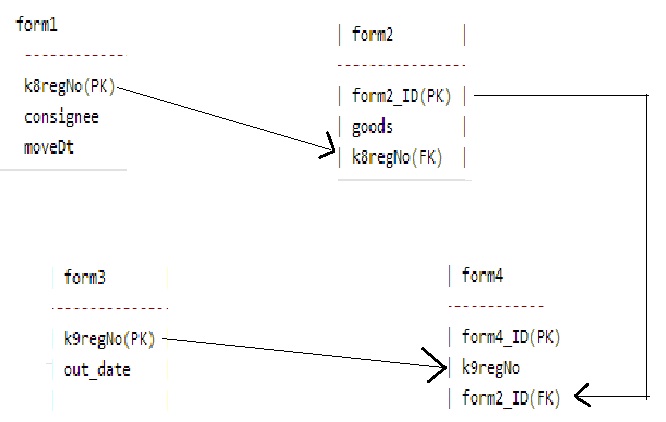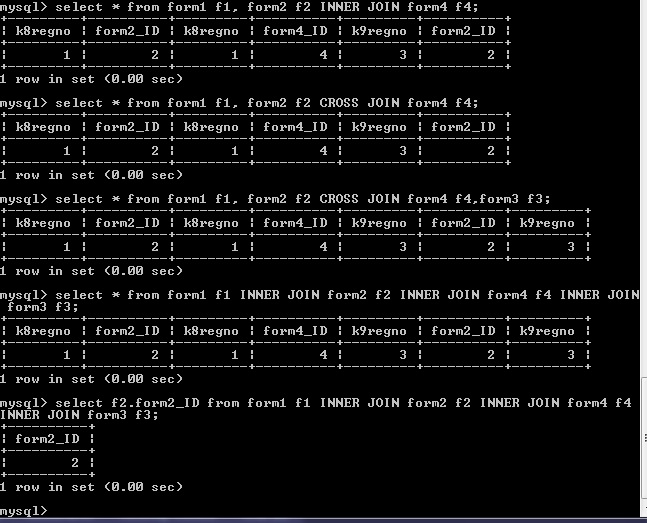Hi, I'm confused right now about mysql statement
I have four tables :
form1 | form2 | form3 | form4 |
-----------------------------------------------------
k8regNo | form2_ID| k9regNo | form4_ID |
consignee | goods | out_date| k9regNo |
moveDt | k8regNo | | form2_ID |
can i join this four tables..?


